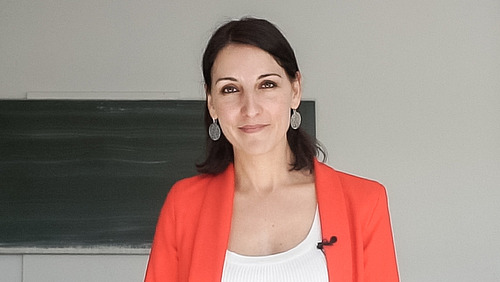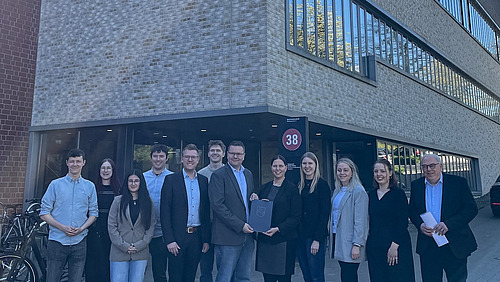The President of the long-established institution, Prof. Dr. Bettina Rockenbach, presented him with his membership certificate at a ceremony.
Prof. Ungermann is the first scientist from Osnabrück University to be admitted to the Leopoldina. Among other things, the biochemist researches how our cells break down and recycle superfluous or damaged cell components. His research focuses on lysosomes, which act as a cellular stomach and contain the necessary digestive enzymes. In addition, his group is investigating the process of autophagy, through which the cell components enter the lysosomes. The degradation products are not disposed of but used as new building blocks by cells. Defects in lysosomes or autophagy are the basis of numerous diseases. Autophagy also occurs during intermittent fasting and sport and promotes renewal processes in the body. Prof. Ungermann's studies "contribute significantly to the understanding of the complex dynamics of protein complexes involved in the functionality of lysosomes and autophagosomes and expand the knowledge of how cells maintain homeostasis under stress conditions", according to the
justification for admission to the Leopoldina. The functionality of lysosomes is not only fundamental for the survival and function of cells, but also plays an important role in the ageing process, as well as in various diseases such as cancer, neurodegenerative disorders and infections. "I am delighted to receive this special award and consider it a great honor to be a member of the Leopoldina," says the 57-year-old, who has been researching and teaching at Osnabrück University since 2005.
Founded in 1652, the German Academy of Sciences Leopoldina has around 1,700 members from numerous scientific disciplines, including around 120 Nobel Prize winners. In 2008, it was appointed Germany's National Academy of Sciences. Its tasks include representing German science abroad and advising politicians and the public.
Further information for the media:
Prof. Dr. Christian Ungermann, University of Osnabrück
School of Biology/Chemistry
cu@uos.de





